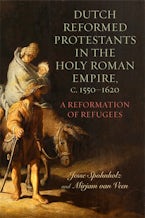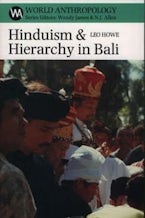
The Pathan Unarmed
Opposition and Memory in the Khudai Khidmatgar Movement
- Description
- Reviews
Examines the rise in the inter-war years of a Gandhian influenced non-violent movement in the North West Frontier.
The Pukhtun (Pathan) of the North West Frontier are regarded as a warrior people. Yet in the inter-war years there arose a Muslim movement, the Khudai Khidmatgar (Servants of God), which adopted military forms of organizations anddress, but which also drew its inspiration from Gandhian principles of non-violent action and was dedicated to an Indian nationalism rather than communal separatism.
Virtually erased from the national historiography of post-partition Pakistan, where they now reside, the ageing veterans of the movement are still highly respected by younger Pukhtun. This is an account of rank and file members of the Khudai Khidmatgar, describing why they joined, what they did, and how they perceived the ethics and aims of the movement. It attempts to answer the questions of how notoriously violent Pukhtun were converted to an ethic of non-violence. It finds the answer rooted in the transformation of older social structures, Islamic revisionism and the redefinition of the traditional code of honour.
South Asia excluding India: OUP
Series Editors: Wendy James & N.J. Allen
The Pukhtun (Pathan) of the North West Frontier are regarded as a warrior people. Yet in the inter-war years there arose a Muslim movement, the Khudai Khidmatgar (Servants of God), which adopted military forms of organizations anddress, but which also drew its inspiration from Gandhian principles of non-violent action and was dedicated to an Indian nationalism rather than communal separatism.
Virtually erased from the national historiography of post-partition Pakistan, where they now reside, the ageing veterans of the movement are still highly respected by younger Pukhtun. This is an account of rank and file members of the Khudai Khidmatgar, describing why they joined, what they did, and how they perceived the ethics and aims of the movement. It attempts to answer the questions of how notoriously violent Pukhtun were converted to an ethic of non-violence. It finds the answer rooted in the transformation of older social structures, Islamic revisionism and the redefinition of the traditional code of honour.
South Asia excluding India: OUP
Series Editors: Wendy James & N.J. Allen
"Mukulika Banerjee's extraordinarily timely study ... sets out to recover a story that has receded from the historical record as well as from popular memory. It is a story that disturbs orientalist stereotypes about the region and its people, and complicates the national narratives of Pakistan and of India. It should also give pause to the policy wonks shuttling between the Beltway and Downing Street, transmuted by the need of the hour into anthropologists and historians as they bone up on Islam and its ways, and on the martial traditions and factional culture of the Afghans. ... Badsha Khan was, for a time, able to make his people believe that the idea of the modern state could be made trustworthy. He was able to forge a movement that tapped the moral repertoire of Islam, and link it into local predispositions, weaving together a distinctive symbolic and practical cloth. This historical episode seems far indeed from the political imagination of Pathans today. But its memory may still have an effect: different futures need alternative pasts. As Haji Chairman Meherban Saha, a veteran Khudai Khidmatgar in his eighties, recalled when talking to Banerjee, 'Badsha Khan's words seemed sweet to us... Talk to a Pathan sweetly and he will do anything.' - Sunnil Khilnani in The" TIMES LITERARY SUPPLEMENT
"... a valuable corrective to orientalist representations, which portray the Pathans as invariably hotheaded and unpredictable. Firmly grounded in anthropological research but with a keen eye for historical nuance, it provides a sober and illuminating insight into a complex society that has long beguiled Western observers and is once again the object of intense Western concern. -" Faranza Shaikh, INTERNATIONAL AFFAIRS
"This forgotten chapter suggests that Islam is more mutable than either its radical adherents or its Western detractors allow and that Pashtun history offers an extraordinary precedent for peace as well as a legacy of war. -" Karl E. Meyer, the NEW YORK TIMES
Paperback
9780852552735
December 2000
£24.99 / $36.95

















